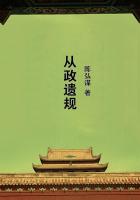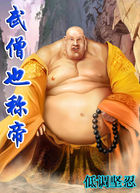Achilleus dies by an arrow-wound in the heel; the thigh of Adonis is pierced by the boar's tusk, while Odysseus escapes with an ugly scar, which afterwards secures his recognition by his old servant, the dawn-nymph Eurykleia; Sigurd is slain by a thorn, and Balder by a sharp sprig of mistletoe; and in the myth of the Sleeping Beauty, the earth-goddess sinks into her long winter sleep when pricked by the point of the spindle. In her cosmic palace, all is locked in icy repose, naught thriving save the ivy which defies the cold, until the kiss of the golden-haired sun-god reawakens life and activity.
The wintry sleep of nature is symbolized in innumerable stories of spell-bound maidens and fair-featured youths, saints, martyrs, and heroes. Sometimes it is the sun, sometimes the earth, that is supposed to slumber. Among the American Indians the sun-god Michabo is said to sleep through the winter months; and at the time of the falling leaves, by way of composing himself for his nap, he fills his great pipe and divinely smokes; the blue clouds, gently floating over the landscape, fill the air with the haze of Indian summer. In the Greek myth the shepherd Endymion preserves his freshness in a perennial slumber. The German Siegfried, pierced by the thorn of winter, is sleeping until he shall be again called forth to fight. In Switzerland, by the Vierwald-stattersee, three Tells are awaiting the hour when their country shall again need to be delivered from the oppressor. Charlemagne is reposing in the Untersberg, sword in hand, waiting for the coming of Antichrist; Olger Danske similarly dreams away his time in Avallon; and in a lofty mountain in Thuringia, the great Emperor Yrederic Barbarossa slumbers with his knights around him, until the time comes for him to sally forth and raise Germany to the first rank among the kingdoms of the world. The same story is told of Olaf Tryggvesson, of Don Sebastian of Portugal, and of the Moorish King Boabdil. The Seven Sleepers of Ephesus, having taken refuge in a cave from the persecutions of the heathen Decius, slept one hundred and sixty-four years, and awoke to find a Christian emperor on the throne. The monk of Hildesheim, in the legend so beautifully rendered by Longfellow, doubting how with God a thousand years ago could be as yesterday, listened three minutes entranced by the singing of a bird in the forest, and found, on waking from his revery, that a thousand years had flown. To the same family of legends belong the notion that St. John is sleeping at Ephesus until the last days of the world; the myth of the enchanter Merlin, spell-bound by Vivien; the story of the Cretan philosopher Epimenides, who dozed away fifty-seven years in a cave; and Rip Van Winkle's nap in the Catskills.[14]
[14] A collection of these interesting legends may be found in Baring-Gould's "Curious Myths of the Middle Ages," of which work this paper was originally a review.
We might go on almost indefinitely citing household tales of wonderful sleepers; but, on the principle of the association of opposites, we are here reminded of sundry cases of marvellous life and wakefulness, illustrated in the Wandering Jew; the dancers of Kolbeck; Joseph of Arimathaea with the Holy Grail; the Wild Huntsman who to all eternity chases the red deer; the Captain of the Phantom Ship; the classic Tithonos; and the Man in the Moon.
The lunar spots have afforded a rich subject for the play of human fancy. Plutarch wrote a treatise on them, but the myth-makers had been before him. "Every one," says Mr.
Baring-Gould, "knows that the moon is inhabited by a man with a bundle of sticks on his back, who has been exiled thither for many centuries, and who is so far off that he is beyond the reach of death. He has once visited this earth, if the nursery rhyme is to be credited when it asserts that'The Man in the Moon Came down too soon And asked his way to Norwich';but whether he ever reached that city the same authority does not state." Dante calls him Cain; Chaucer has him put up there as a punishment for theft, and gives him a thorn-bush to carry; Shakespeare also loads him with the thorns, but by way of compensation gives him a dog for a companion. Ordinarily, however, his offence is stated to have been, not stealing, but Sabbath-breaking,--an idea derived from the Old Testament.
Like the man mentioned in the Book of Numbers, he is caught gathering sticks on the Sabbath; and, as an example to mankind, he is condemned to stand forever in the moon, with his bundle on his back. Instead of a dog, one German version places with him a woman, whose crime was churning butter on Sunday. She carries her butter-tub; and this brings us to Mother Goose again:--"Jack and Jill went up the hill To get a pail of water. Jack fell down and broke his crown, And Jill came tumbling after."This may read like mere nonsense; but there is a point of view from which it may be safely said that there is very little absolute nonsense in the world. The story of Jack and Jill is a venerable one. In Icelandic mythology we read that Jack and Jill were two children whom the moon once kidnapped and carried up to heaven. They had been drawing water in a bucket, which they were carrying by means of a pole placed across their shoulders; and in this attitude they have stood to the present day in the moon. Even now this explanation of the moon-spots is to be heard from the mouths of Swedish peasants.
They fall away one after the other, as the moon wanes, and their water-pail symbolizes the supposed connection of the moon with rain-storms. Other forms of the myth occur in Sanskrit.
The moon-goddess, or Aphrodite, of the ancient Germans, was called Horsel, or Ursula, who figures in Christian mediaeval mythology as a persecuted saint, attended by a troop of eleven thousand virgins, who all suffer martyrdom as they journey from England to Cologne. The meaning of the myth is obvious.















